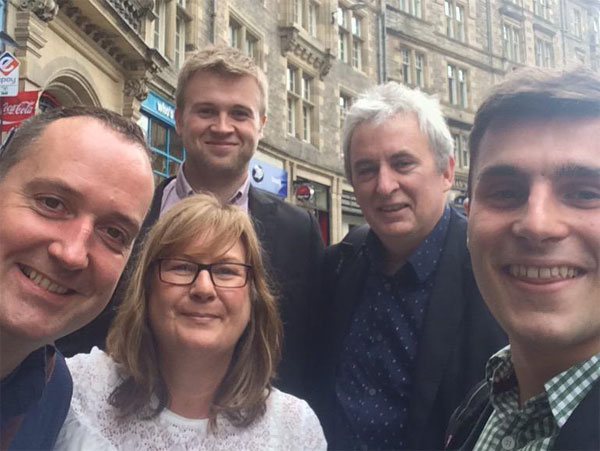Changeworks Recycling (CWR) works with businesses in Glasgow and Edinburgh offering a waste and recycling service. When we first met they were doing well – but wanted to do better.

Established for over 15 years their first 10 years of business saw substantial year on year growth. But then business began to flatten out and growth became more difficult. In particular, cheaper competitors whose attitude to effective recycling was more, let’s say casual, became more difficult to unseat during recessionary times.
“Our sales activity suddenly seemed to be having less impact, we found ourselves runners up when we previously would have been preferred suppliers. We had confidence that our offer was superior, yet we couldn’t understand why we weren’t winning.” Ken McLean, General Manager, Changeworks Recycling.
Ken knew his team were capable of so much more and didn’t understand why they were regularly coming second. Why were they failing to get prospects over the line and convert them to customers? Why were they becoming the best waste management company not to deal with?
Clearly, change was needed.
The issue:
The management team felt the issue was cultural. They identified that most prospects felt their relationship with CWR was transactional, i.e. not relationship based. This was the opposite of where CWR wanted to be – they wanted to build long-term relationships with their customers and guide and influence them to excellence in resource management. And develop a vibrant sales culture.
After meeting with CWR we agreed that the issue was indeed cultural and worked with them to ascertain the best way to fix it. Having a clear strategy is important, but as the American business guru Peter Drucker once famously said, “Culture eats strategy for breakfast”.
“We had had some informal discussions with Hawthorn but had employed the strategy that if it ain’t broke… But this time we were struggling to fix it ourselves.
We engaged with Hawthorn to deliver an intervention strategy, understanding that there would be no quick fix. Two things happened for us immediately however – the team were re-energised and found the confidence to try new ideas, and we understood what we were doing badly. Thereafter, it was a process of not just doing the right things, but doing them with style.” Ken McLean.
The solution:
Our first step in addressing the cultural issues was to develop the team, ensuring each team member exhibited high levels of interpersonal flexibility, working together effectively to achieve their common goals.
The next step was to set clear direction for each member of the sales team. Each team member was asked to develop a specific activity plan which they were empowered to develop but were also held accountable to complete by their Sales Manager. Empowered because they developed the plans, but held accountable for completion of them. Typically, businesses get both of these aspects wrong.
Having developed these plans we set about upskilling team members in the skills required to deliver the activities contained in the plans. This was essential in ensuring the team members were effective in developing and displaying the skills required for high performing salespeople.
Upskilling training focused on the skills required by high performing salespeople, namely:
- Developing a vibrant sales culture
- Needs-based selling
- Relationship building
- Interpersonal Skills
- Prospecting skills
- Strategic prospecting
- Door stepping
- Telephone sales
- Networking
- Seeking referrals
The training given was job-relevant and specific to each salesperson’s situation. One of the challenges we encountered ensuring the sales team followed the activities detailed in their plans. A regular feature of the training was to review these plans and have the team members present their progress against them. In doing this the plans, and their performance against them, became highly public as team members were as accountable to each other as to their manager.
The outcome:
When we started working with CWR at the start of 2014 the sales team consisted of a manager and two salespeople. Sales were flat; the team failing to perform.
Today the sales team has grown to include four new sales people and between them they are consistently hitting 150% of their 2015 sales targets – a performance that has continued, and improved, in 2016 and confirmation that they have a vibrant sales culture.
Despite recessionary pressures and a cut-throat market, by focusing on developing a high performing sales culture, CWR is not only growing but recording a surplus many times higher than had been projected.
Leaving the final word to Ken:
“The Hawthorn approach isn’t necessarily the easiest (if it was everyone would be doing it) but for us it has helped us get back to winning ways in what are for everyone challenging economic conditions.
That first chat over a cup of coffee was, with hindsight, one of our better moves!”

